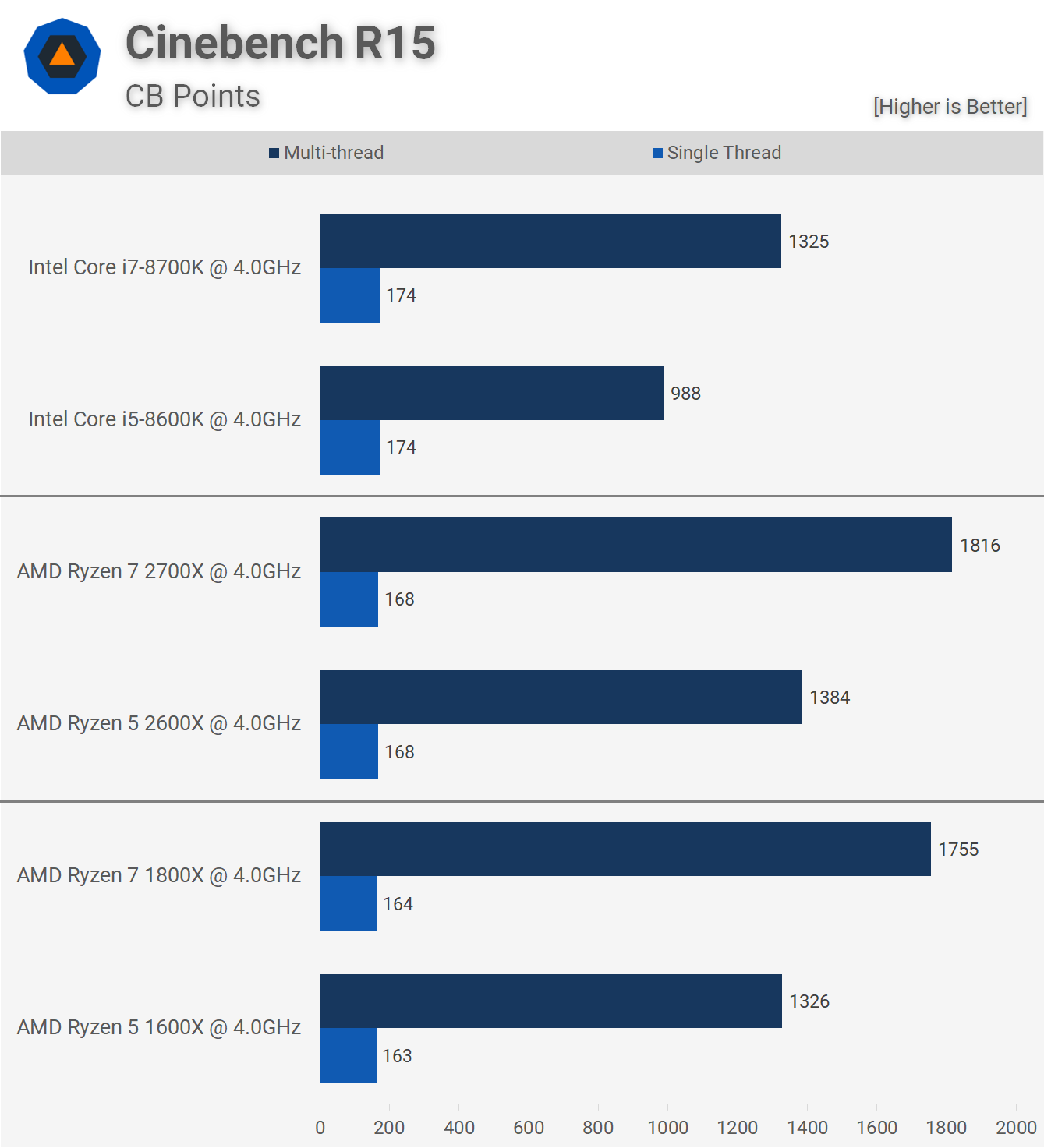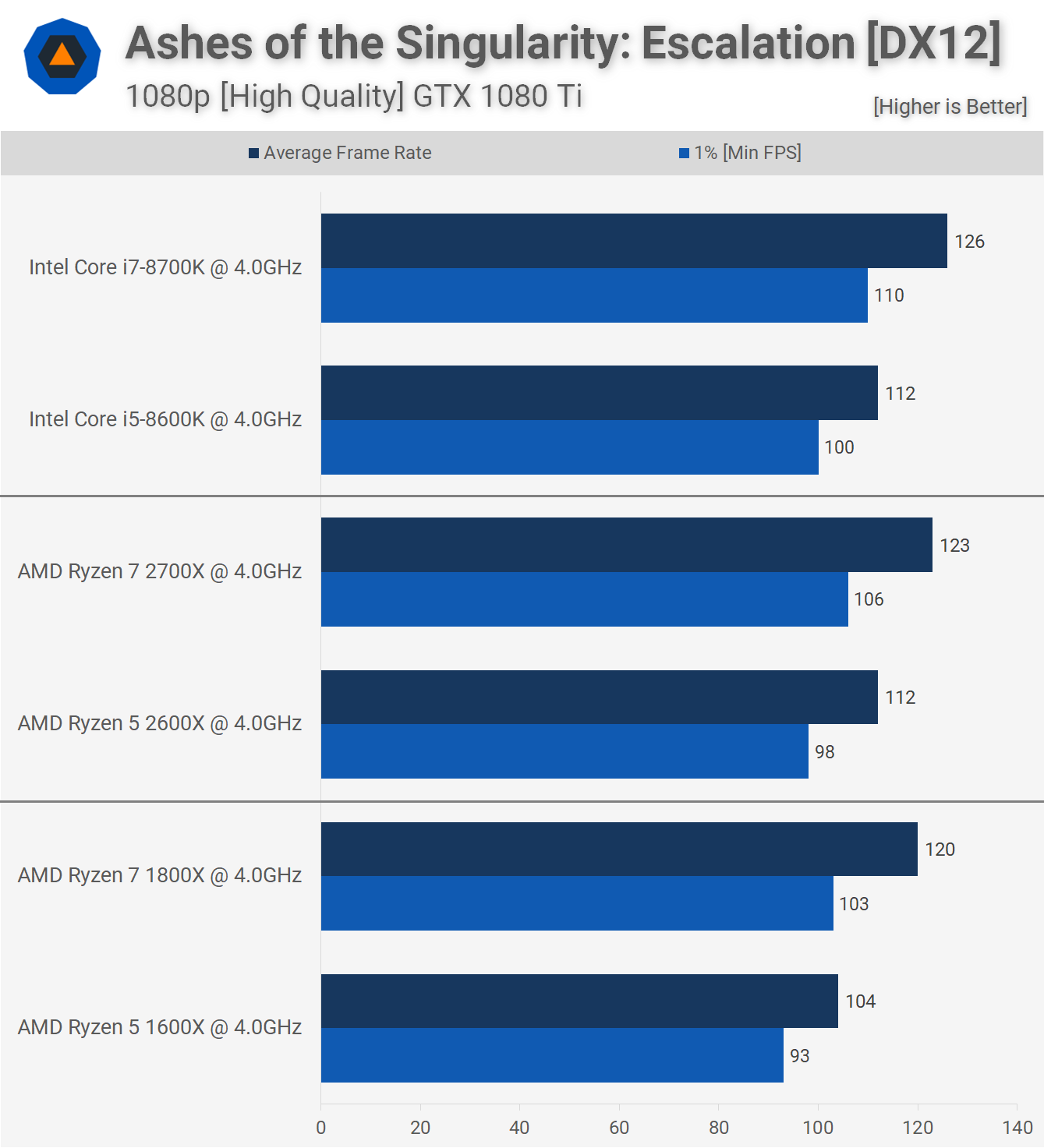aldaia :
Summary of Ryzen 2000 series reviews.
https://www.3dcenter.org/news/ryzen-2000-launchreviews-die-testresultate-zur-anwendungs-performance-im-ueberblick
The site has compiled most of the Ryzen 2000 series reviews, so far 26 reviews present.
The interesting part is the average of those reviews: 2700X is 8% faster than 8700K while 2600X is 13% faster than 8600k.
https://www.3dcenter.org/news/ryzen-2000-launchreviews-die-testresultate-zur-anwendungs-performance-im-ueberblick
The site has compiled most of the Ryzen 2000 series reviews, so far 26 reviews present.
The interesting part is the average of those reviews: 2700X is 8% faster than 8700K while 2600X is 13% faster than 8600k.
So the 2700K is 8% faster despite having 33% moar cores. And the 2600K is 13% faster despite having 2x moar threads.




















